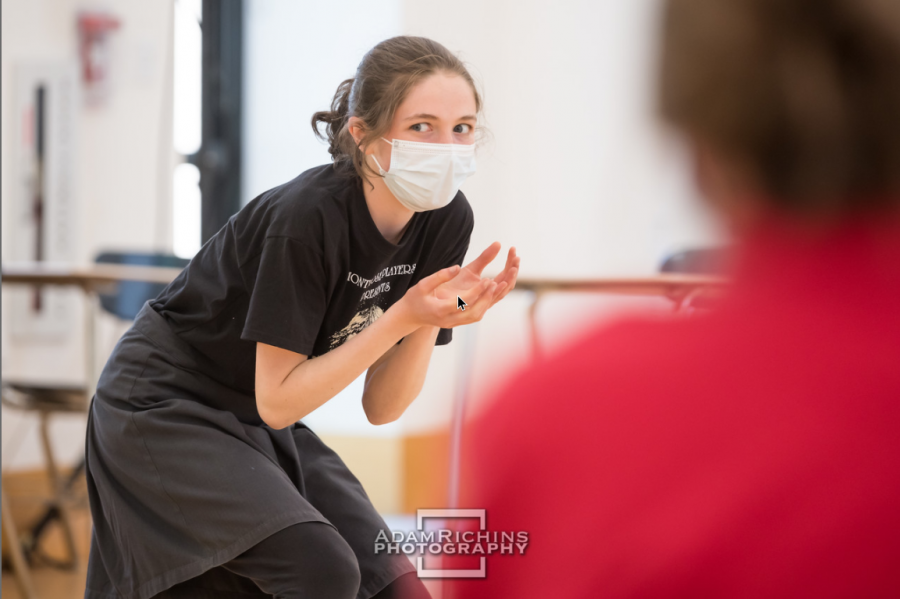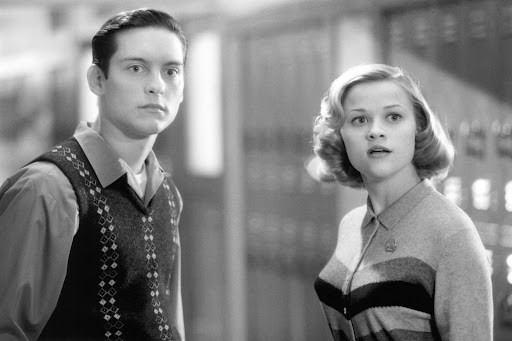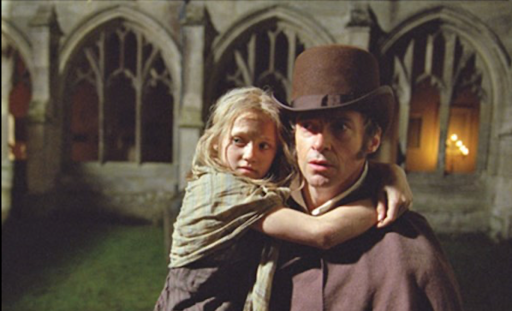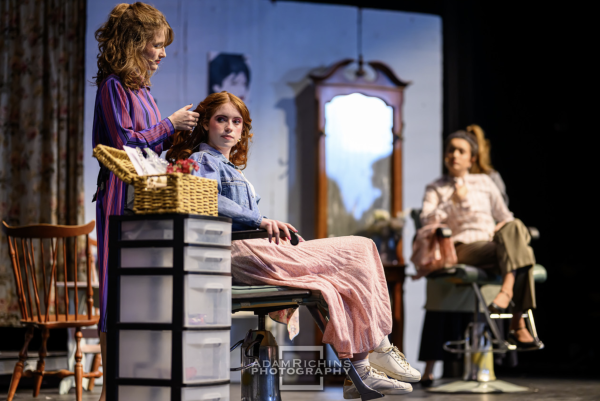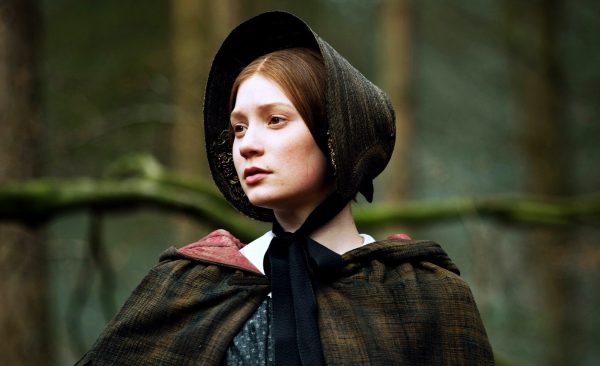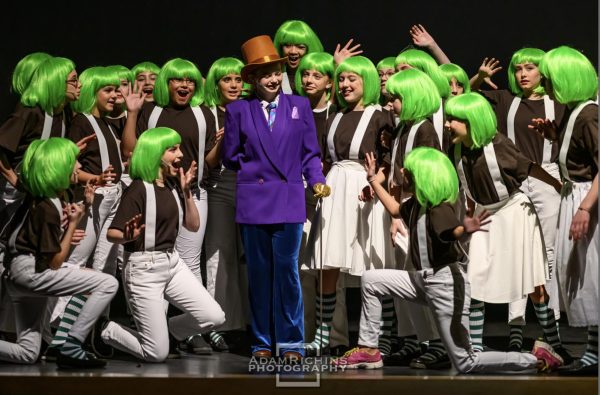This Year’s Merrie Month of May
Anna Sheehan ‘21 performing a monologue from A Midsummer Night’s Dream.
When I walked into the M&M for my first Merrie Month of May, I was surprised to hear Renaissance music and Shakespearean insults thrown at me (thou churlish evil eyed kank blossom!) Special to Montrose, all students read a Shakespeare play in May. Students follow the Folger method while reading and analyzing the plays and poems. Administrators and teachers alike believe that students need to act out the plays for them to fully understand what they are reading. Over the course of a few days in May, each student chooses an excerpt from their Shakespeare book they read that year and performs it.
Students read the following works of literature by Shakespeare: A Midsummer Night’s Dream (6), Much Ado about Nothing (7), Romeo and Juliet (8), Julius Caesar (9), Measure for Measure (9), Merchant of Venice (10), Macbeth (11), and Hamlet (12). Every student read well, bringing you into the play as if you were there in the story, watching and wondering what will happen next. Many students dressed up for their part, displaying their commitment to the work they were performing. Every student threw themselves into the Montrose spirit and their part with their acting. In one scene from Julius Caesar that the ninth grade performed, the conspirators threw fake knives, Caesar really fell to the ground dead, and the conspirators “bathed” in his blood. Through these actions, the students demonstrated that it’s not just about reading and analyzing Shakespeare’s works: it’s about understanding it by acting, reading well, and embracing all interpretations of the literature. Everyone has the courage to go up and perform for everyone, whether alone or in a group for this fun way of demonstrating their knowledge of the literature.
Before performing excerpts from Shakespeare’s works, students had to truly understand the story in order to analyze the information to keep as knowledge. Their knowledge of the literature came through reading, annotating, understanding, and analyzing emotions and why certain elements were included in the story (analogies strategically placed to create a deeper understanding of what is truly happening). There were often double meanings in the works and the writings often answered hard questions. In Measure for Measure, students explored the question of mercy vs. justice. They discovered that they are two very different concepts and cannot be applied to the same situation without consequences.
In addition to performing excerpts, students traded Shakespearean compliments and insults and practiced speaking lines with each other. Also, the tenth grade started by playing zip zap zop, ensuring a fun way to start class with a chain reaction of laughter. Every class ended with Renaissance music, dancing, and death line reads. Students were given a random death line from different Shakespearean works, read it aloud to everyone, and “died” their way upon finishing the line. A few classes were granted a very special treat: Anna Sheehan, the 2nd place National Shakespeare Competition winner, performed an excerpt from A Midsummer Night’s Dream and Sonnet 2 with her own interpretations. One student commented: “Her performance really brought me into the story. It was super cool and it really helped me to understand how important it is to gain my own interpretation of Shakespeare’s works.”
Anya Marino ’24, Contributing Writer

